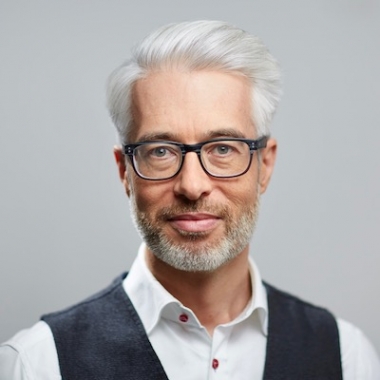
Harald Sack is Professor for Information Services Engineering at two of the most renowned research institutions in Europe: FIZ Karlsruhe and AIFB. He is a part of SEMANTiCS‘ research and innovation track program committee as well as of the conference’s permanent advisory board. His publications include more than 130 papers in international journals and conferences and three standard textbooks on networking technologies. Harald is also one of the founders of yovisto GmbH. In this interview he speaks about the limited capabilities of search engines, the necessity of data being open and the coffee culture in Vienna.
You have been working in many research areas such as semantic web technologies, knowledge representations, multimedia analysis & retrieval. Which technology will shape our future the most?
Harald Sack: “It’s tough to make predictions, especially about the future”, as physicist Niels Bohr is quoted to have said. One thing for sure will change the world as we know it today, and this is the rise of autonomous systems. I would expect major progress in the synthesis of symbolic logic as for (explicit) knowledge representation in combination with (implicit) deep neural networks. This development will lead to autonomous systems that learn while interacting with their environment, that are able to generalize, to draw deductions, and to adapt to new, previously unknown situations.
What are you currently focusing on in your research work? How does this contribute to the advancement of semantic technologies?
Harald Sack: In particular my research is focused on the application of semantic technologies in combination with machine learning for information extraction, semantic analysis, as well as for semantic and exploratory search in information systems. One of my favourite application areas is exploratory search, i.e. searching where you don’t know exactly where the search process might lead you to. Sometimes you might not be able to explicitly phrase your search intention. Probably because you lack the vocabulary or you might not be an expert in the domain in which you are looking for information. Then, first you have to gather information about your domain before you might be able to perform pinpoint retrieval. This process can be supported by intelligent recommender systems, extending your scope, leading you through the vast search space on dedicated paths towards your preferred direction. This is something that current search engines are not capable of.
SEMANTiCS: You are very passionate about open data and open software. You are an active member of the DBpedia Board and the German DBpedia Chapter. How does open data and linked data complement each other?
Harald Sack: To obtain maximum benefit of linked data, data has to be linked to other data, i.e. other data must also be able to link to your data. This is easily achieved, as long as data is provided as open data. Proprietary data can of course also be linked to other data, but how should I know that it is there and that it would also benefit from being externally linked and reused. However, I know that data also might be an asset and therefore your business case demands your data to be proprietary. Nevertheless, in research we should demand to keep our research data open to ensure reproducibility of our research results. Otherwise, research progress will be limited.
SEMANTiCS: What do you expect from SEMANTiCS 2018 in Vienna and the DBpedia Community Meeting? And what is the story about your #CoffeeChallenges? Please enlighten us.
Harald Sack: I am looking forward to SEMANTiCS 2018, since I really appreciate the concept of the conference to bring together industry driven research and applications with the academic research community. Like other academic researchers, I also have a second foothold in industry as co-founder and one of the CEOs of yovisto, a company exploiting semantic analysis and search technology. For the upcoming DBpedia Community Meeting, I hope that we will be able to announce the successful relocation of the German DBpedia servers from Berlin to Karlsruhe. Concerning the #CoffeeChallenge, again I am looking forward to revisit Vienna as being one of the coffee capitals of the western world. Let’s keep fingers crossed that this year’s conference organisers are able to provide decent coffee. However, we will be in Vienna and I am sure that we will find some excellent coffee. ;-)
Discuss the potential of autonomous systems with Harald at SEMANTiCS 2018. Register now!